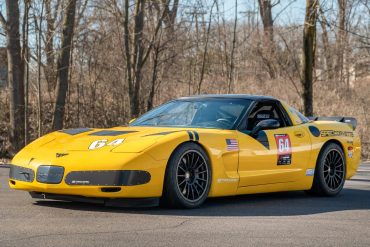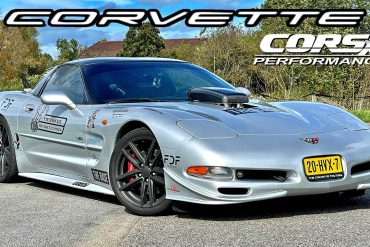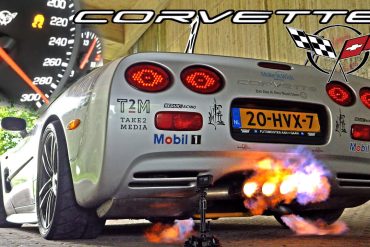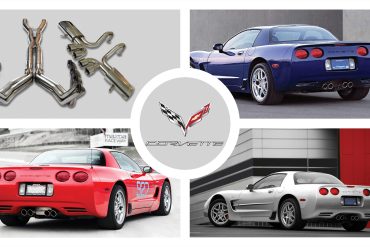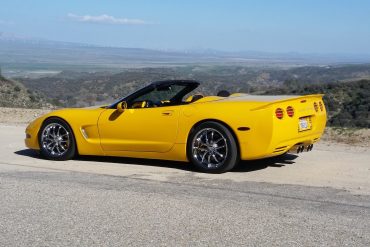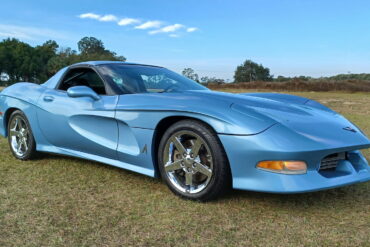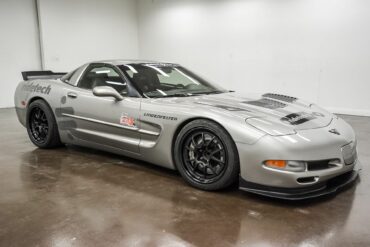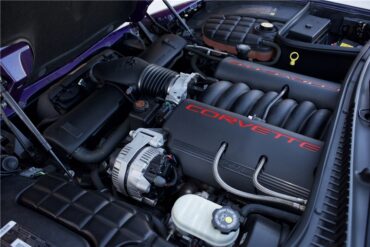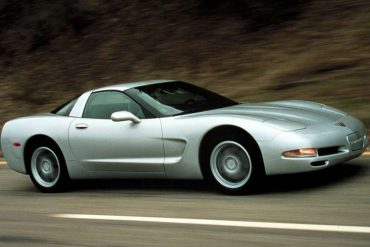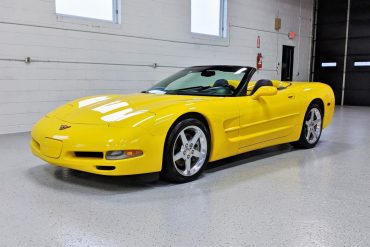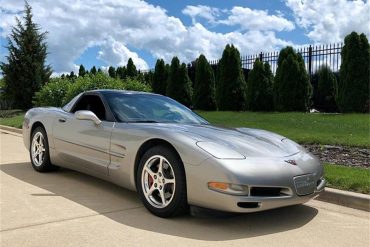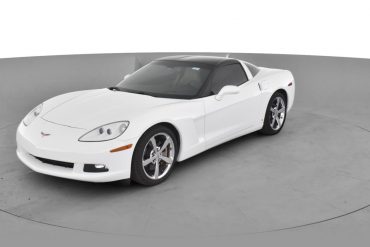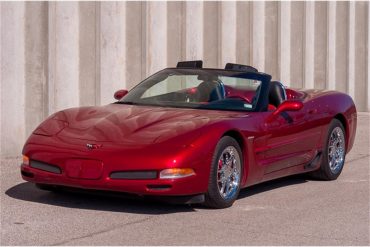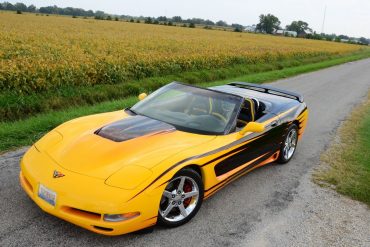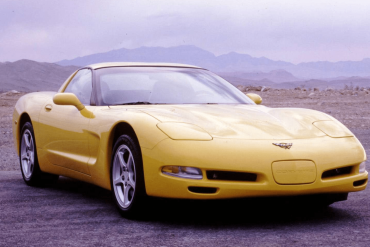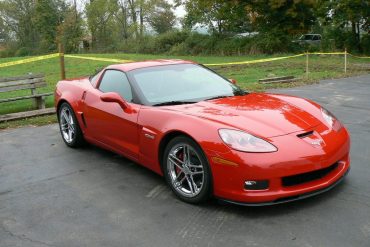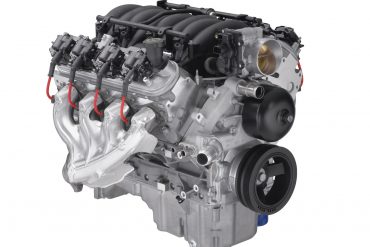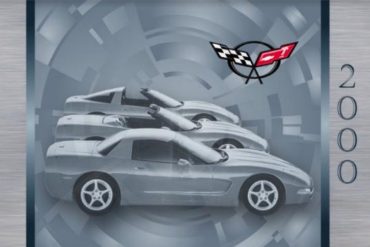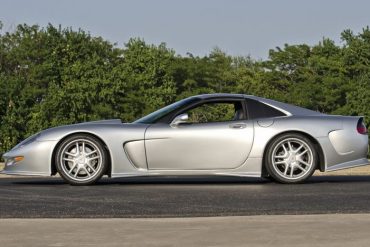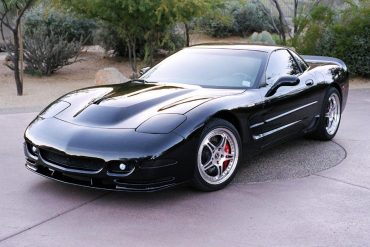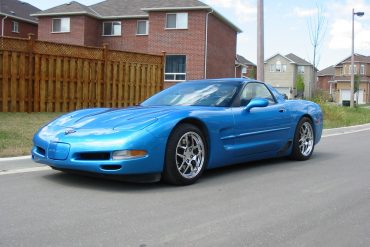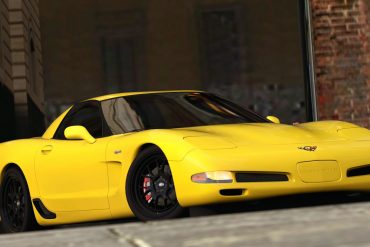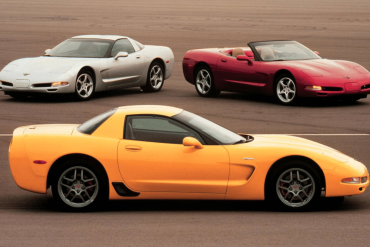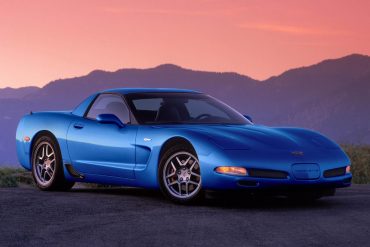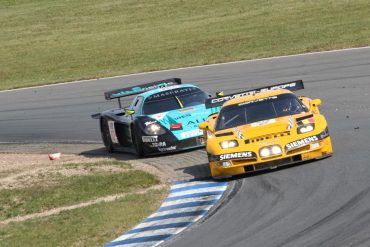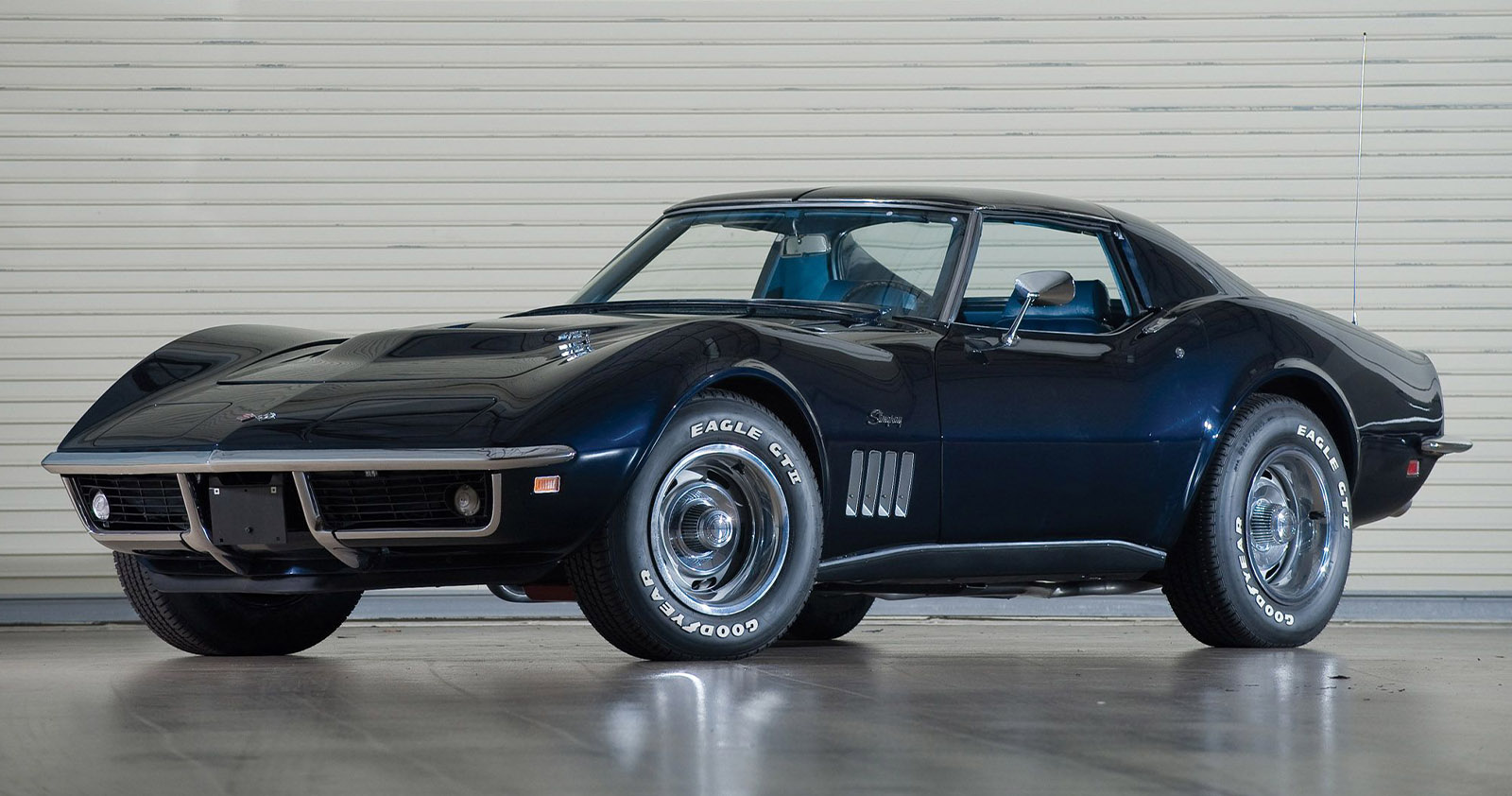This 2000 Chevrolet Corvette coupe has been modified for Spec Corvette events, featuring a roll cage, fire suppression system, kill...
The C5 Corvette, produced from 1997 to 2004, is undeniably striking, boasting a muscular and powerful appearance. The iconic pop-up...
In this AutoTopNL video, a modified 2000 C5 Corvette, equipped with an upgraded exhaust claiming an output of 344 hp,...
Experience the untamed roar of a 2000 C5 Corvette with Corsa Exhaust in this exhilarating video shared by AutoTopNL on...
If you own a C5 Corvette and haven’t gotten this error message yet, chances are high that you will if...
These are the best exhausts for 1997-2004 C5 Corvettes. The installation of a custom exhaust provides a great way to...
To commemorate the arrival of the new millennium, Chevrolet offered two new paint colors or the 2000 model year –...
The Avelate Corvette was created by former GM designer Don Johnson and Dean Arnold. The Avelate borrowed some design inspiration...
The car featured below is a high-performance 2000 C5 Corvette and a track-proven beast that was used by Ridetech as...
When the C5 Corvette was finally unveiled critics were quick to notice a thundering new powerplant. It carried the LS1 designation, serving as the C5 Corvette’s base engine for the duration of the production run. Ironically, the C5 Corvette would only ever leave the factory with one of two individual engines. This included the aforementioned 5.7L LS1, as well as the all-powerful 5.7L LS6, which powered the C5 Z06.
For all 2000 Corvettes in the U.S. and Canada, the Vehicle Identification Number (VIN) was stamped on a plate on the inner vertical surface of the left windshield pillar visible through the windshield. (See Figure below)
In the beginning, there was only one Corvette: the convertible, a.k.a. roadster. Corvette has traveled far since that first Polo White, Powerglide ’53 Vette rolled off a makeshift Flint, Michigan, assembly line, but the magic endures in every graceful line of the 2000 convertible. A SUBTLE HINT OF EARLIER CLASSICS — “Our future must start with our past,” says Corvette Chief Designer John Cafaro...
The 2000 Corvette was maturing as both a performance platform and as an aesthetic knockout. Get all the options, pricing, and color data here.
The following list of common issues is intended for individual reference only, and may not reflect the specific issues of every 2000 Corvette.
Looking for information on how to maintain your 2000 Corvette? We've curated resources to help you keep your Corvette in great shape for years to come!
See the complete technical specifications and performance information for the 2000 Chevrolet Corvette, including engine specs, acceleration, & quarter mile.
We have curated the ultimate collection of the 2000 Corvette Wallpapers and HD backgrounds for you to enjoy. Free to download
Light Pewter 2000 Chevrolet Corvette We found some examples of 2000 Corvette in the Light Pewter color scheme. These real Light Pewter paint pictures...
In 2000, a total of 33,682 Corvettes were produced. Production volume was strong for the C5 production at Bowling Green, KY in 2000.
2000 C5 Corvette RPO Codes, Options Codes & Order Guide If you are looking to decode your 2000 Corvette RPO’s...
The LS1 is the spiritual successor to the “small block V8” that GM uses in rear-wheel-drive cars, trucks, and vans. It was introduced in 1995 as the “GEN III” engine and it only shared rod bearings, lifters, and bore spacing with its predecessors (which was in production 1955 until 2003). Little did GM expect for the LS1 has become a legend.
This Owners Guide contains important information regarding the operation and maintenance of your 2000 Corvette. In order to obtain maximum enjoyment and usage from your car, we suggest that you familiarize yourself with the contents...
Callaway has built a firm reputation for producing some of the most sophisticated and advanced Corvette-based automobiles. Introduced in 1998, Callaway’s C12 continued this proud legacy. Designed, developed and constructed by two top German engineering and development companies, Callaway and IVM, the C12 was intended as a bespoke, high-performance car that offered its occupants a civilized interior and relaxed ride. One of the most respected Corvette super-cars ever.
C5 Corvette Car Covers C5 1996-2004 Corvette Custom Fit Car Cover This Xtrashield car cover is here to protect your...
To Remain or Not To Remain Factory Equipped? That Is the Question… Every Corvette owner knows that driving their car...
Built from 1997 until 2004, the C5 Corvette is considered one of the most reliable. Given its increasing affordability, the C5 offers a lot of power and performance at great value. How its maintained and cared for can dramatically affect the overall quality.
Browse 2000 C5 Corvette pictures, photos, and images. Explore and get inspired by hundreds of interior, exterior and action photos.
2000 C5 Corvette Ultimate Guide. History, Production Stats & Facts, Engine Specs, VIN Numbers, Colors & Options, Performance & Much More, we cover it all.
The Corvette C5-R was part of a plan by General Motors and their Chevrolet brand to create a factory team to participate in grand touring races not only in North America, but also elsewhere in the world, most notably at the 24 Hours of Le Mans. GM had previously been against approving factory support for Corvette racing programs, although the IMSA GT Championship's Corvette GTPs had seen some support until they ended competition in 1989.


